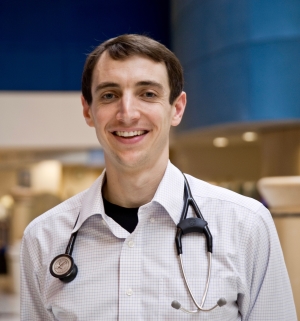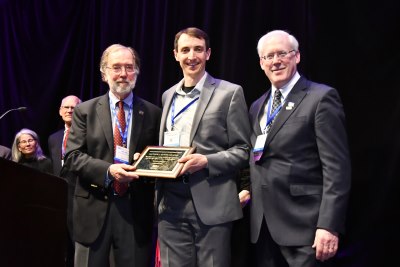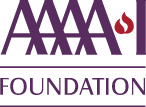Interview of Matthew C. Altman, MD, MPhil

Dr. Altman, grew up in Seattle, Washington. He’s the son of an allergist, Leonard C. Altman, MD, FAAAAI, one important influence he credits with motivating him to pursue a career in allergy and immunology. He attended both Stanford and Harvard Universities where he studied high-level mathematics and computational modeling, and years later, he’s managed to merge his passion for these fields with his clinical interests in A/I.
Institution: University of Washington
Project: Regulatory Circuits Between Antiviral Type I Interferon and Th2-Type Inflammation in Pediatric Asthma
Award Term: 2019 - 2022
What is the goal of your research?
My project, Regulatory Circuits Between Antiviral Type I Interferon and Th2-Type Inflammation in Pediatric Asthma, focuses on the use of systems biology approaches in both in vivo and ex vivo human asthma studies to better delineate the complex networks of these immune pathways in children with asthma, the relationships among these and other important molecular pathways, and their relative kinetics during viral illnesses, allergen exposures and asthma exacerbations. I plan to use unbiased network analyses to create better models of how these pathways interact in the context of disease. By developing a more nuanced picture of these pathways, our anticipation is that we will better understand both fundamental mechanisms of asthma pathogenesis as well as approaches to mitigate disease severity.
What made you decide to go into medical research?
I attended Harvard Medical School, which presented me with outstanding
biomedical research opportunities and high quality research training. Throughout my medical studies I was also able to work in computational and systems biology labs. I continued to stay involved in these research projects as a medical resident at Harvard’s Brigham and Women’s hospital. Ultimately I moved back to Seattle and the University of Washington to specialize in A/I and focus on systems immunology research. In 2015 William W. Busse, MD, FAAAAI, invited me to join in the Inner City Asthma Consortium, which was a perfect opportunity to apply our systems immunology approaches in translational research studies.
What are your future research and career goals?
The project the AAAAI Foundation is supporting is a critical building block of my research and career goals. It will allow me to dig deeper into our previous results in a way that hopefully will influence asthma management. It should also provide me the tools and experience to study asthma more comprehensively by investigating multiple sources of host and environmental heterogeneity. We will be collecting and integrating many sources of omics data including genome, transcriptome, microbiome, exposome and others. In the long run, we plan to incorporate the power of big data analytics to more comprehensively understand asthma pathogenesis and heterogeneity. This is a critical step towards building my own lab where we will help develop the big data computational tools to advance knowledge not only of asthma, but of allergic and immunologic diseases more broadly.

What obstacles have you faced in getting to where you are today?
I’d be remiss to not start by thanking my many supporters who have encouraged me to pursue my goals and ultimately merge my passions into a physician-scientist career. That being said, my career path is unconventional and has hit obstacles along the way. While meshing big data and mathematics with biomedical research is increasingly accepted, many physicians and researchers still see it as non-traditional and as result it has often been difficult to gain support.
How has the Faculty Development Award helped you in your career?
Where I’m at right now is one of the most critical and challenging parts of an academic physician-scientist career. After fellowship, there is less of an established path and no guaranteed funding or support to pursue academic research. Having mentors and colleagues who believe in the importance of my work and receiving support from such a prestigious professional organization within the A/I field provides me tremendous determination. The AAAAI Foundation understands how important it is to early career scientists and to our specialty to encourage and support young researchers, and I’m very grateful for that.
Who are your mentors?
Vamsi Mootha, MD, John Walker, PhD, Joshua A. Boyce, MD, FAAAAI, Marianna C. Castells, MD, PhD, FAAAAI, Bruce Levy, MD, K. Frank Austen, MD, FAAAAI, Damien Chaussabel, PhD, Teal Hallstrand, MD, MPH, Jason S. Debley, MD, MPH, Dr. Busse, James E. Gern, MD, FAAAAI, Lisa Wheatley, MD, and Alkis Togias, MD, FAAAAI.

